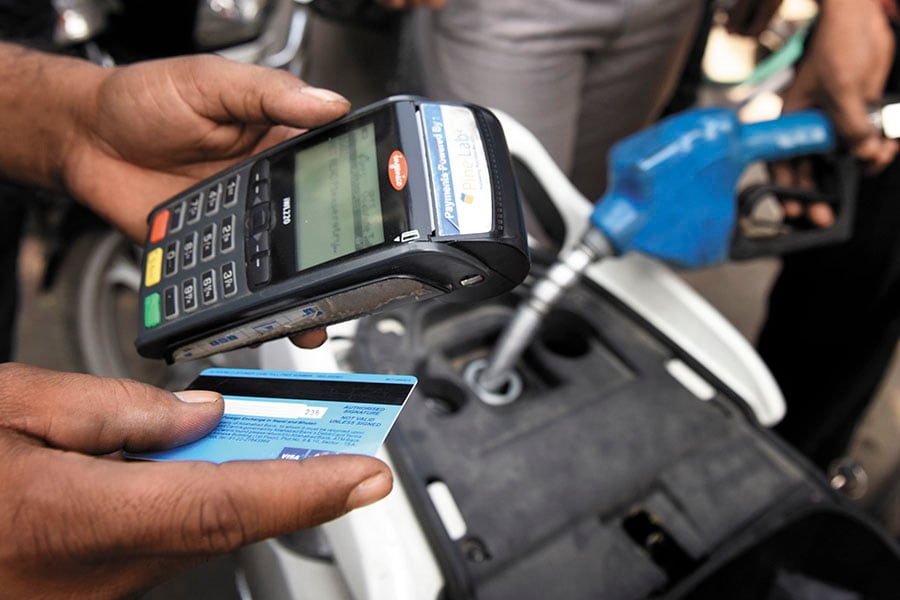The budget indicates policy-based governance: Sanjiv Goenka
Spending money on building infrastructure to create jobs, and not handing out doles, marks the new normal


Budget 2017 was an outstanding statement of the Narendra Modi-led central government’s intent on where it wants to take the Indian economy.
Through the provisions announced in the budget, finance minister Arun Jaitley effectively re-emphasised what has become the new normal for the Indian economy, which is now being based on policies rather than on discretion.
One of the key highlights of the budget was the absence of any kind of populism, which could have been a temptation easy to succumb to, given that elections are underway in various states and more are scheduled for later this year.
The government has rightly decided to base its budgetary provisions on fiscal prudence and Jaitley’s articulation of the government’s intention to stick to a fiscal deficit target of 3.2 percent in 2017-18 and 3 percent in 2018-19 was encouraging.
Votes notwithstanding, the government judiciously ensured that it didn’t go overboard in spending, and avoided incurring any expenditure that could have had a major impact on the country’s finances.
Rather than giving out doles, the government directed its expenditure programme towards overheads that will help create jobs and boost overall economic growth.
The significant expenditure of Rs 3.96 lakh crore towards creating physical and digital infrastructure—both in urban and rural areas—will definitely give a boost to core industry, which in turn will help generate employment and boost the country’s Gross Domestic Product (GDP). Proposals to promote digital transactions will help make the system more transparent
Proposals to promote digital transactions will help make the system more transparent
Image: Sushil Kumar / Hindustan Times via Getty ImagesThe total budgetary allocation of Rs 1.87 lakh crore for the rural, agricultural and allied sectors towards initiatives including affordable housing, sanitation, electrification and skill development will certainly help uplift the quality of life of people in rural areas, who are valuable consumers for all kinds of products and services.
The government’s public spending programme, proposals to invest in new infrastructure, focus on agriculture, and measures to put more money in the hands of the people by steps such as lowering the tax rate for individuals whose salaries fall in the lowest income slab will surely stimulate additional demand and boost consumer spending. This will help the country recover faster from the effects of demonetisation, and push the progress of remonetisation along expected lines.
Access to proper housing at an affordable cost is a challenge that many Indians face. According infrastructure status to affordable housing will be a shot in the arm for residential projects as this will give builders access to institutional—including overseas—and low-cost sources of funding.
The quantum and quality of spending that the government intends to undertake will also boost sentiments for private sector enterprises. Typically, there is a lag between the announcement of policy measures and their impact. Consequently, one can hope that private sector investments in capital expenditure will pick up over the next couple of quarters, based on the stimulus provided by the government.
It was also heartening to note that the government intends to continue with its agenda of making it easy to do business in India by cutting red tape and bureaucracy.
Announcing the intention to abolish the Foreign Investment Promotion Board (FIPB) was a step in that direction. While most foreign direct investment (FDI) proposals don’t need approval from the FIPB any longer, the government is clear that even those that do should be ratified by the administrative ministries entrusted with overseeing the respective economic sectors to which such FDI proposals pertain, and not the finance ministry. This should certainly help attract further foreign capital into India.
The finance minister’s proposal to confiscate the assets of economic offenders who flee the country will also prove to be a deterrent against such lawbreakers. Compelling them to remain within India’s jurisdiction will help financial institutions that have lent to such individuals, or their companies, recover their dues.
Budget 2017 was also a reiteration of the government’s intention to move towards establishing a digital and more cashless economy, which will lead to a cleaner society and increased formalisation of the economy.
Measures like imposing restrictions on cash transactions beyond a threshold and various initiatives to promote digital transactions will help make the system more transparent, to the benefit of the common citizens of the country.
(As told to Aveek Datta)
First Published: Feb 13, 2017, 10:37
Subscribe Now